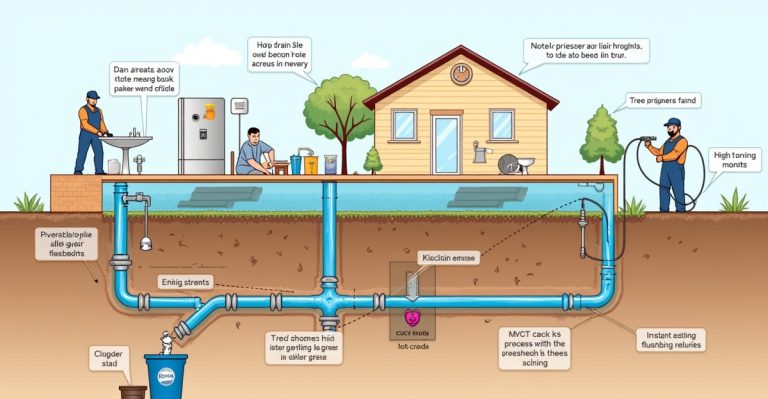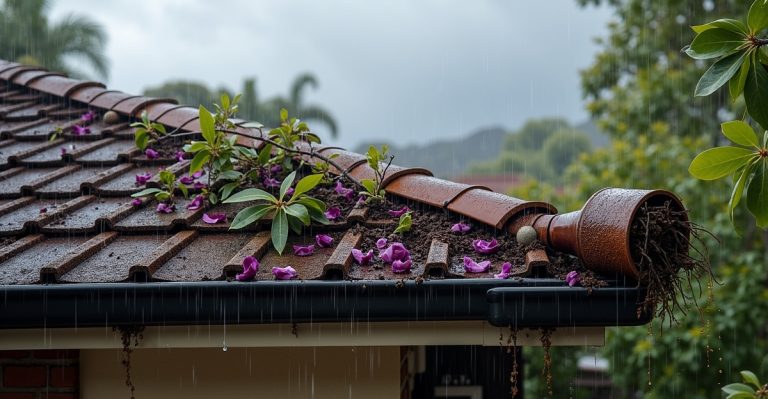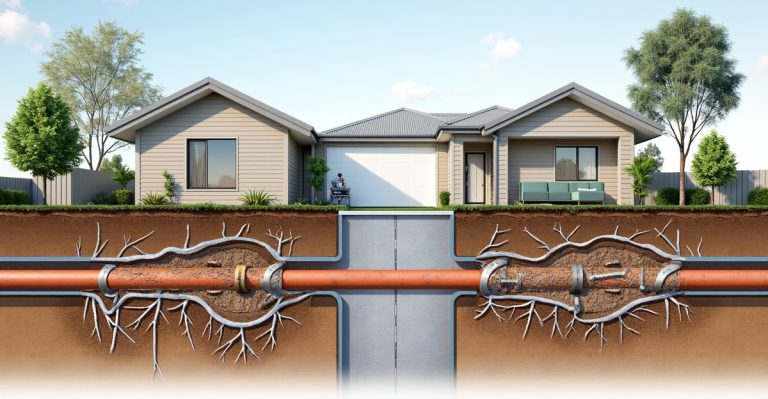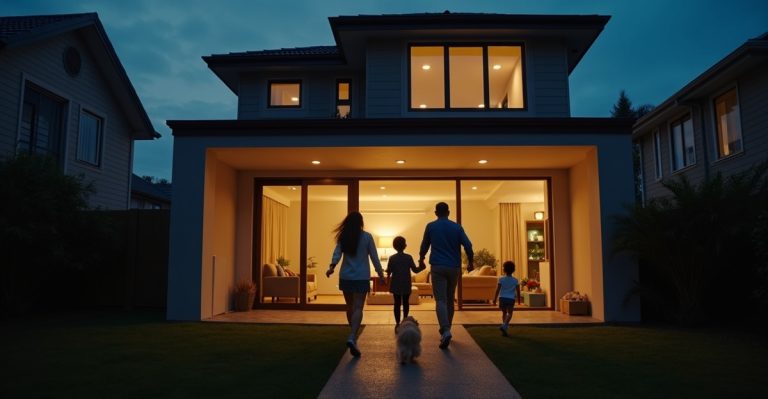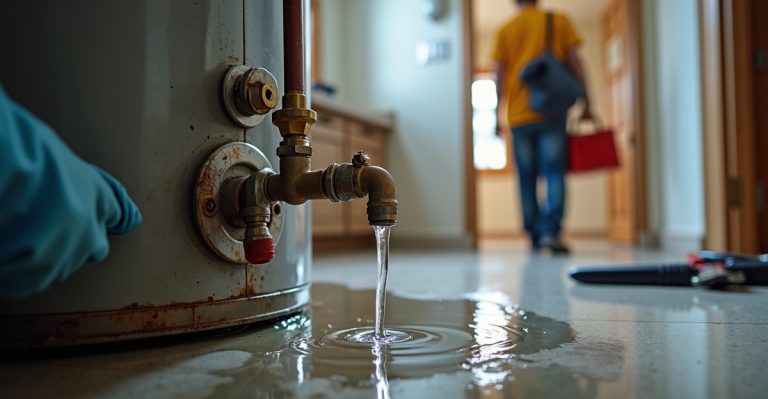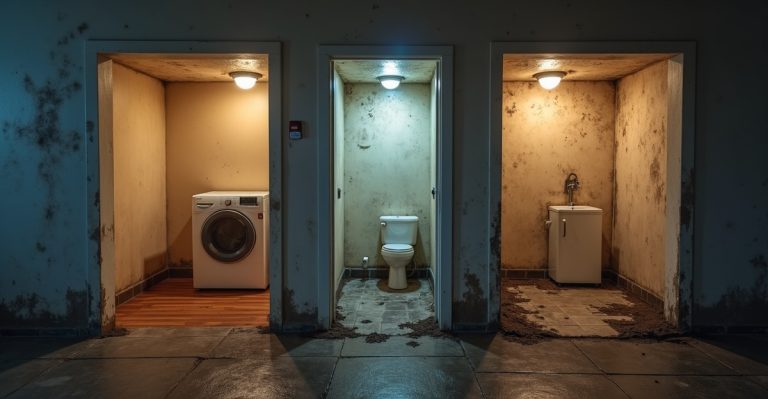DIY Waterproofing vs Hiring a Pro in NSW: Key Differences

Thinking about taking on your own bathroom waterproofing? You’re not alone. Many Sydney homeowners weigh the pros and cons of DIY vs professional waterproofing—often unsure which path is safer, smarter, or even legal.
This guide breaks down both options to help you make a confident, compliant decision that protects your property and your peace of mind.
In this article, we’ll cover:
- Understanding Waterproofing in NSW
- DIY Waterproofing – What You Can and Can’t Do
- Hiring a Licensed Waterproofing Professional
- DIY vs Professional Waterproofing: Pros and Cons
- Making the Right Choice for Your Project
- Why Code-Compliance Matters Beyond Just Rules
Let’s start by looking at why waterproofing is so critical—and what the law in NSW says about who can do it.
Understanding Waterproofing in NSW

Why Waterproofing Is Critical for Bathrooms
Bathroom waterproofing is more than just a protective layer—it’s your first line of defense against costly water damage, structural decay, and mold growth. Given how much water flows through showers, tubs, and basins every day, even a small failure in sealing can lead to long-term issues beneath tiles and behind walls.
A properly waterproofed bathroom ensures that moisture stays where it’s supposed to—inside the plumbing and drainage systems—not soaking into floors, walls, or adjacent rooms. For homeowners, this translates to:
- Fewer repair bills over time
- Greater structural integrity
- Better indoor air quality
- Higher resale value
Unfortunately, many people only realize the importance of waterproofing after something goes wrong—like bubbling paint, rotting skirting boards, or a ceiling leak downstairs. Whether you’re renovating or fixing a minor issue, it’s vital to get waterproofing right the first time.
Consider the benefits of professional bathroom waterproofing to ensure long-term protection and legal compliance. For a step-by-step breakdown of materials, application methods, and waterproofing zones, refer to our complete bathroom waterproofing guide and explore bathroom waterproofing products that meet NSW compliance.

Legal Requirements in NSW
Deciding between professional vs home waterproofing solutions comes down to more than just cost. To maintain safety and building standards, the state mandates that certain waterproofing tasks be carried out only by licensed professionals.
Here’s what the law says:
- Any waterproofing work in wet areas (e.g., bathrooms, laundries, and some balconies) must comply with the National Construction Code and Australian Standard AS 3740.
- Only a licensed waterproofing contractor is legally allowed to perform waterproofing work in residential construction or renovation projects where the value of labor and materials exceeds $5,000.
- Even for smaller jobs, insurance implications and resale requirements often demand licensed involvement.
For detailed licensing requirements, visit the NSW Government waterproofing licence page.
In short, DIY waterproofing is not always legal or safe in NSW—especially for high-risk areas like showers or entire bathroom renovations. Hiring an unlicensed contractor or doing it yourself without understanding these rules can result in:
- Failed council inspections
- Voided insurance claims
- Costly rework or fines during resale
Licensed waterproofers in NSW are required to:
- Be certified and registered under NSW Fair Trading
- Provide waterproofing certificates for work completed
- Follow code-compliant installation methods and materials
- Offer warranty protection for their work
Takeaway: While bathroom waterproofing may look like a job you can tackle yourself, NSW law requires that much of it be handled by a licensed pro to ensure safety, compliance, and long-term protection of your home.
DIY Waterproofing – What You Can and Can’t Do
Tackling waterproofing on your own can be tempting—especially with the wide availability of DIY kits and online tutorials. For budget-conscious or hands-on homeowners, doing the job yourself may seem like a cost-saving solution. But in New South Wales, the rules around who can legally waterproof are clear—and they limit what you can do without a license.

Common DIY Waterproofing Methods
Some homeowners choose to take on small-scale waterproofing tasks as part of minor repairs or cosmetic updates. Common DIY efforts include:
- Applying silicone sealant around vanities, bathtubs, and sink joints
- Using waterproof tape or membranes to patch visible leaks temporarily
- Rolling or brushing on waterproofing primer or membrane to small surface areas (like under a vanity or laundry tub)
- Sealing grout lines with a penetrating sealant to prevent water absorption
While these tasks may provide short-term relief or support general maintenance, they don’t replace full, code-compliant waterproofing.
For those focusing on vanity-related sealing and upgrades, see our bathroom vanity installation service page.

Tools and Kits Available to Homeowners
Hardware stores and online retailers offer a wide range of DIY waterproofing kits for home use. Some of the more popular ones include:
- DIY waterproofing kits, which typically include primers, membranes, reinforcement fabric, rollers, and application guides
- Waterproof membrane paints (liquid or sheet-based) for walls and floors
- Brushes and rollers specifically designed for membrane application
- Sealant guns and caulking tools for tight areas like joints and corners
These kits are designed to be user-friendly—but using them correctly, and knowing where they are appropriate, is critical. Even with the right tools, incorrect preparation or improper layering can lead to premature waterproofing failure.

Legal Restrictions for Non-Licensed Work
In NSW, the line between what’s “doable” and what’s legally allowed is strict. Homeowners are generally not permitted to carry out waterproofing in bathrooms, wet areas, or anywhere a building inspection is required—unless they are licensed.
Here’s what you legally can’t do unless you’re a licensed waterproofing contractor:
- Apply a waterproofing membrane in showers, bathrooms, or laundry wet areas as part of new builds or renovations
- Carry out waterproofing for any work over $5,000 in value (labor + materials)
- Issue compliance certificates or waterproofing warranties
- Perform work that must meet council or building code inspections
Doing this work without a license not only risks fines—it also invalidates warranties and insurance coverage, and can delay or derail a property sale if the work is ever questioned.
Takeaway: While DIY kits can help with minor sealing tasks, any serious or structural waterproofing in NSW should be left to a licensed professional. Doing more than the law allows could cost you far more than hiring an expert from the start.
Hiring a Licensed Waterproofing Professional
When it comes to safeguarding your home from water damage—especially in high-risk areas like bathrooms—there’s no substitute for professional experience. A licensed waterproofing contractor offers more than technical skill; they bring compliance, accountability, and peace of mind. In New South Wales, where strict waterproofing regulations apply, hiring a qualified expert is often the only legally sound and financially sensible choice.

What a Licensed Contractor Provides
Professional waterproofers are trained to use the best waterproofing method for bathrooms, handling complex layouts, plumbing proximity, and moisture-prone surfaces. using methods that meet both Australian standards and practical performance. When you hire a licensed waterproofing contractor, you benefit from:
- Proper surface preparation to ensure full adhesion of waterproofing layers
- Application of high-grade, commercial waterproofing membranes
- Expert knowledge of where and how to reinforce critical zones (e.g., shower recesses, wall-floor junctions)
- Precision in layering, curing times, and sealing—all backed by experience
Unlike DIY attempts, professional applications are executed systematically to prevent future leaks or failures that could cost thousands in repairs.

Code Compliance and Certification in NSW
In NSW, compliance isn’t optional—it’s the law. Licensed waterproofing professionals must:
- Be registered through NSW Fair Trading
- Follow Australian Standard AS 3740, which outlines waterproofing requirements for domestic wet areas
- Provide a certificate of compliance upon job completion
For government-backed guidelines on certification, refer to the NSW waterproofing certificate process. Also, see the emergency remedial work regulations from NSW Fair Trading to understand legal responsibilities during unplanned repairs or renovations.
This certification isn’t just paperwork. It’s essential for:
- Passing council or building inspections
- Ensuring legal protection in the event of damage
- Meeting resale or rental compliance standards
Without this certificate, your waterproofing may be deemed non-compliant, which could delay renovations, void insurance, or complicate property sales.

Warranty, Insurance, and Long-Term Value
Beyond technical precision, professionals offer what DIY can’t: accountability. Licensed contractors typically provide:
- Workmanship warranties, often lasting several years
- Public liability insurance to protect your property during the job
- Post-installation support if issues arise later
This matters not just for your current renovation—but for the long-term condition and value of your home. Investing in licensed waterproofing is a form of protection that extends well beyond the finished bathroom.
Takeaway: Hiring a licensed waterproofing professional ensures your work is done legally, expertly, and with the protection of certification and warranty—offering long-term security for your home and finances.
DIY vs Professional Waterproofing: Pros and Cons
Deciding between professional vs home waterproofing solutions comes down to more than just cost. Each option in the DIY waterproofing vs professional debate has trade-offs in time, quality, legal compliance, and long-term outcomes.
While DIY can appear quicker and cheaper upfront, professional waterproofing offers long-lasting value and peace of mind—especially in places like NSW where regulations are strict.

Time, Cost, Quality, Risk, and Legal Impact
Here’s how DIY and professional waterproofing stack up across key factors:
- Time: DIY may seem faster, but inexperience often leads to delays, mistakes, or redos. Pros work efficiently and know exactly what’s needed.
- Cost: Upfront costs are lower for DIY (mainly materials), but long-term expenses can grow if issues arise. While the cost of professional waterproofing services may be higher initially, their work typically prevents costly future repairs.
- Quality: Quality varies widely with DIY, depending on your skill and product use. Licensed contractors deliver consistent, code-compliant results with commercial-grade materials.
- Risk: DIY increases the risk of failure, leaks, and non-compliance. Professionals carry insurance and warranties—reducing your exposure to future problems.
- Legal Compliance: In NSW, unlicensed waterproofing in wet areas is illegal and non-insurable. Professionals ensure your project is legally certified and ready for inspection or resale.
Comparison Table
| Factor | DIY Waterproofing | Professional Waterproofing |
| Upfront Cost | Lower (materials only) | Higher (labor + materials) |
| Time Required | Longer (due to learning curve) | Faster, more efficient |
| Legal Compliance | Often non-compliant under NSW law | Fully compliant with NSW building regulations |
| Skill Required | High – needs precision, prep, and technique | Managed by experienced, licensed contractors |
| Warranty | None (unless product-based) | Yes – workmanship and compliance warranties |
| Insurance Validity | May be void if not certified | Covered by contractor’s insurance |
| Risk of Failure | Higher – especially in wet zones | Low – installed to code, professionally tested |
| Long-Term Value | Can lead to costly repairs | Reliable, adds value and longevity to the renovation |
Takeaway: While DIY waterproofing might seem appealing on the surface, hiring a licensed professional is the safer and smarter investment—especially when quality, compliance, and long-term peace of mind are your priorities.
Making the Right Choice for Your Project
Choosing between DIY and professional waterproofing isn’t always black and white. The best option depends on your project’s complexity, your experience level, and—most importantly—the legal and safety implications of doing it yourself. For some minor touch-ups, a DIY approach may suffice. But when it comes to high-risk areas like showers or full bathroom renovations, it’s crucial to understand when to step back and bring in a licensed expert.

When DIY Might Be Feasible
If you’re dealing with small, non-structural waterproofing tasks that fall outside regulated wet areas, DIY may be a reasonable choice. These situations include:
- Reapplying silicone or sealant around bathtubs, sinks, or vanities
- Touching up minor surface areas that aren’t subject to inspection
- Using a waterproofing primer or membrane on surfaces that won’t be directly exposed to high moisture or water pooling
DIY might also be considered if:
- The work is purely cosmetic or preventative
- The total value of the project (materials + labor) is well under $5,000
- You’re confident in your skills and understand product instructions thoroughly
But even then, it’s wise to consult with a professional first to confirm the scope is truly DIY-appropriate.

When to Always Call a Pro
Some projects require professional intervention—not just for safety and performance, but because it’s the law. Call a licensed waterproofing contractor when:
- The area includes a shower, bath, laundry, or any regulated wet zone
- Waterproofing membranes or drainage systems are being installed or replaced
- The job value exceeds $5,000 (including materials)
- You’re renovating or building and require inspection or compliance certificates
In these cases, DIY attempts not only risk failure—they could also void your home insurance or delay resale due to non-compliant work.

The Middle Ground: DIY Prep + Professional Finish
For homeowners who enjoy hands-on work but respect legal boundaries, a hybrid approach can be ideal. You might:
- Handle demolition or surface preparation (e.g., removing tiles, cleaning surfaces)
- Install non-regulated features like sealing vanities or waterproofing minor storage areas
- Leave membrane application, drainage sealing, and certification to the professionals
This approach allows you to stay involved while ensuring the core waterproofing is done right—and legally.
Takeaway: Match your approach to the scope and risk of your project. Minor maintenance may be DIY-friendly, but anything structural or involving wet zones should always involve a licensed pro—your home, your finances, and your peace of mind depend on it.

Why Code-Compliance Matters Beyond Just Rules
It’s easy to see building codes as red tape—but when it comes to waterproofing, they exist for good reason. In New South Wales, waterproofing compliance is about more than ticking a legal box. It directly impacts your home’s value, insurance coverage, and your ability to pass inspections during resale or renovations. Ignoring these standards might save you time now, but it can cost you far more down the line.
Resale Value, Insurance, and Inspection Risks
Here’s what’s at stake when waterproofing isn’t up to code:
Inspection Failures
During property sales or renovations, building inspectors will check for compliance documentation—especially for wet areas like bathrooms. If you’ve done unlicensed waterproofing, you could:
- Fail inspection and delay settlement
- Be forced to redo work at your own expense
- Lose buyer confidence and reduce your home’s perceived value
Voided Insurance Claims
Most home insurance providers in NSW require waterproofing work to be done by a licensed professional. If you suffer water damage caused by non-compliant work—even months or years later—your claim could be denied, leaving you to cover repairs out of pocket.
Reduced Resale Value
Buyers expect quality renovations that follow legal standards. If waterproofing work isn’t certified:
- It could lower your asking price
- Make the property harder to sell
- Trigger requests for costly remedial work before contracts are signed
Don’t cut corners where it counts most. For help evaluating your renovation scope or booking a certified service, get in touch with our licensed waterproofing team.
No Legal Recourse
With professional waterproofing, you receive warranties and a certificate of compliance. If something goes wrong, you’re protected. With DIY or uncertified work, you’re on your own—no recourse, no guarantee.
Code-compliant waterproofing isn’t just a legal formality—it’s a safeguard for your home’s future value, your insurance protection, and your peace of mind during resale or renovation. Don’t cut corners where it counts most.
Choosing a licensed professional over DIY not only ensures compliance—it also gives you the legal protection, quality assurance, and long-term value that shortcuts simply can’t match.
Frequently Asked Questions (FAQs)
In most cases, no. NSW building regulations require that waterproofing in wet areas—like bathrooms, laundries, and showers—be carried out by a licensed professional. DIY waterproofing in these areas is not only risky but can also be illegal, especially if the job exceeds $5,000 or requires certification. Always check with NSW Fair Trading or a licensed contractor before starting any waterproofing work.
If DIY waterproofing fails, you could face significant issues such as:
Water damage to floors, walls, or adjacent rooms
Mold growth and poor indoor air quality
Costly repairs that exceed what a professional would have charged upfront
Voided insurance claims if the work wasn’t done by a licensed contractor
Compliance issues if you plan to sell or renovate the home
In short, the risks far outweigh the short-term savings.
Upfront, yes—DIY kits are less expensive than professional services. However, if mistakes are made, the long-term costs (e.g., repairs, rework, failed inspections) can quickly add up. Professionals bring quality materials, experience, and compliance—which means fewer surprises and better value over time.
In NSW, a qualified waterproofing contractor should:
Be licensed with NSW Fair Trading
Have experience specifically in bathroom and wet area waterproofing
Offer a certificate of compliance upon completion
Provide warranty coverage for their workmanship
Carry public liability insurance
It’s also a good idea to check reviews or request examples of past work before hiring.
Yes, licensed waterproofers typically provide workmanship warranties that cover their work for several years. These warranties offer peace of mind and may also be required by insurers or building certifiers—especially when using certified systems like those featured in our guide on which bathroom membrane is right for you.
Always ask what the warranty includes and ensure it’s documented in writing.

